Meeting MIXED livestock-crops-agroforestry farmers in Ariège in France
When the MIXED project partners met in Toulouse in September, they visited two locations of one organic mixed crop-livestock farm enterprise (Ferme de Taux) and one crop-livestock-agroforestry farm enterprise (Ferme d’Icart).
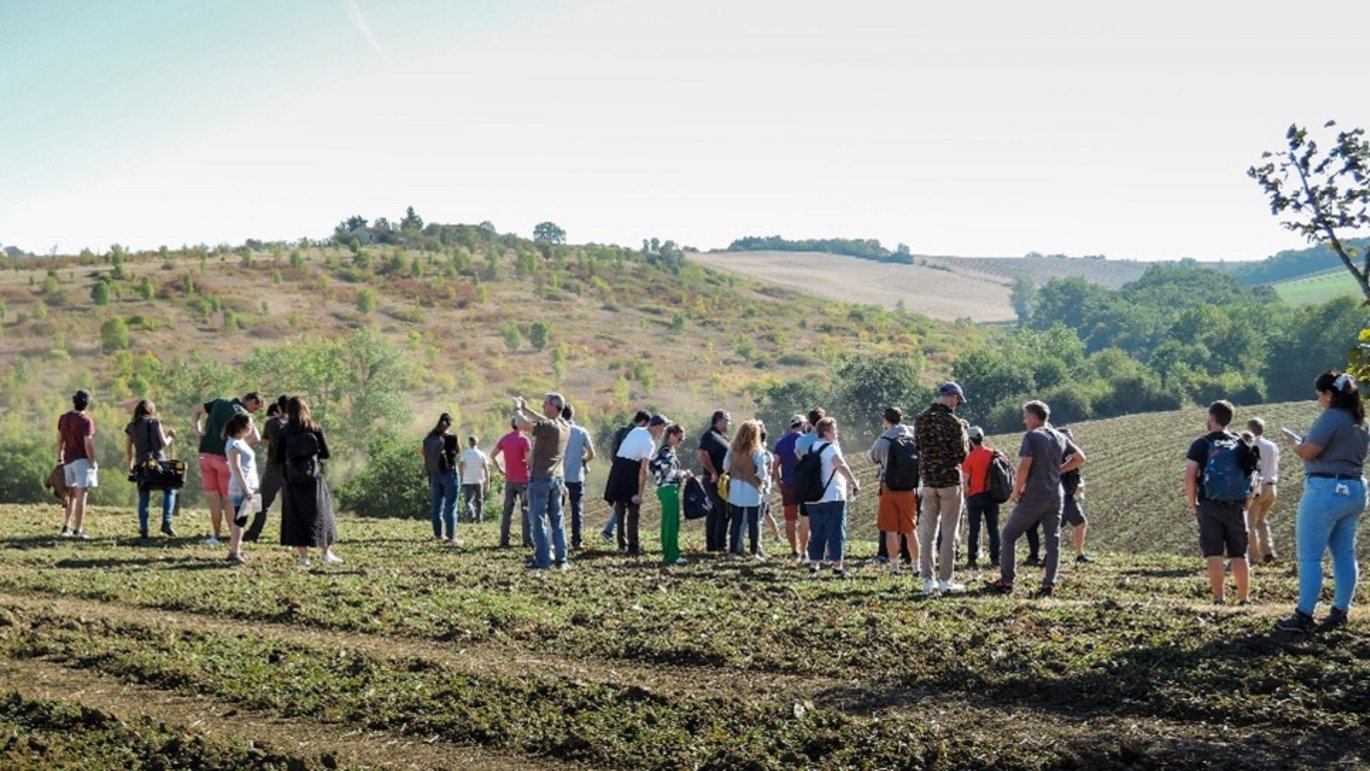

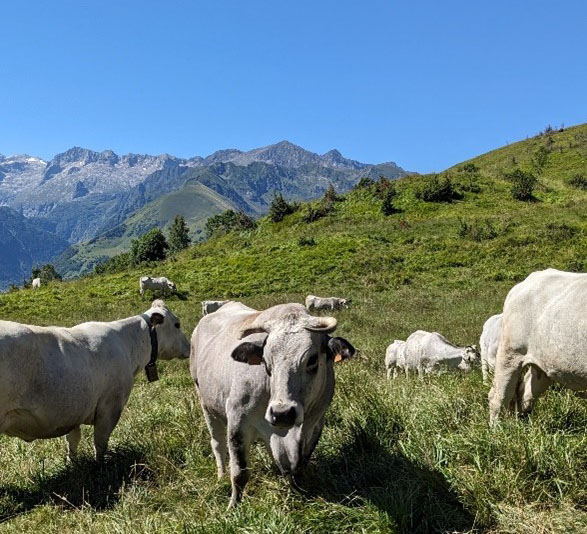
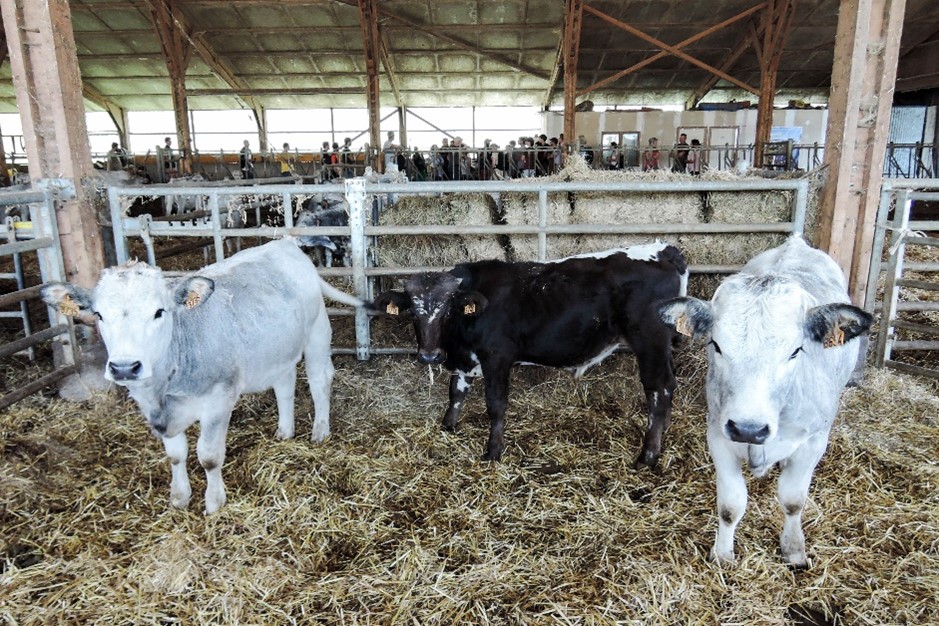
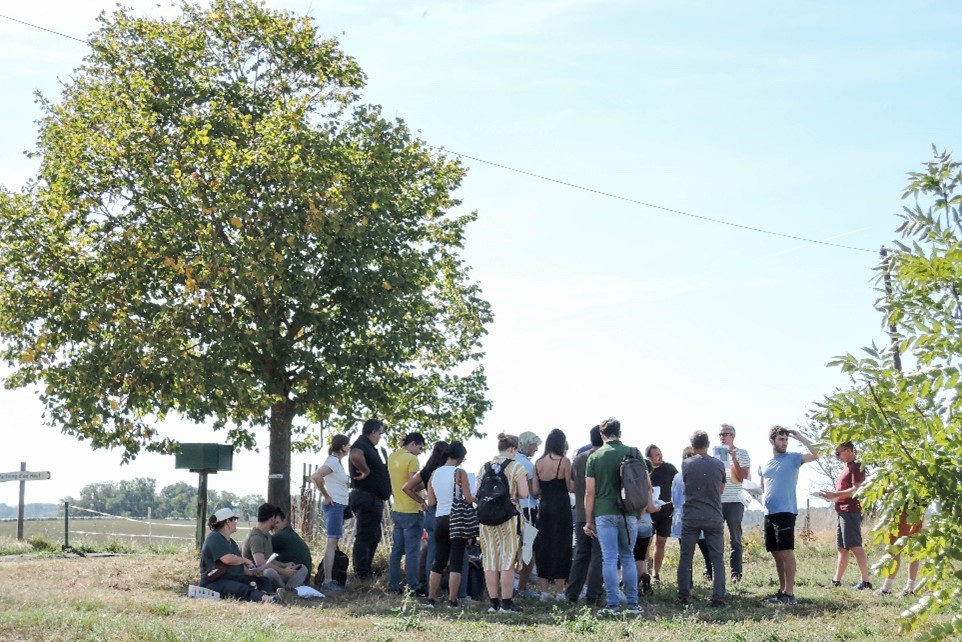
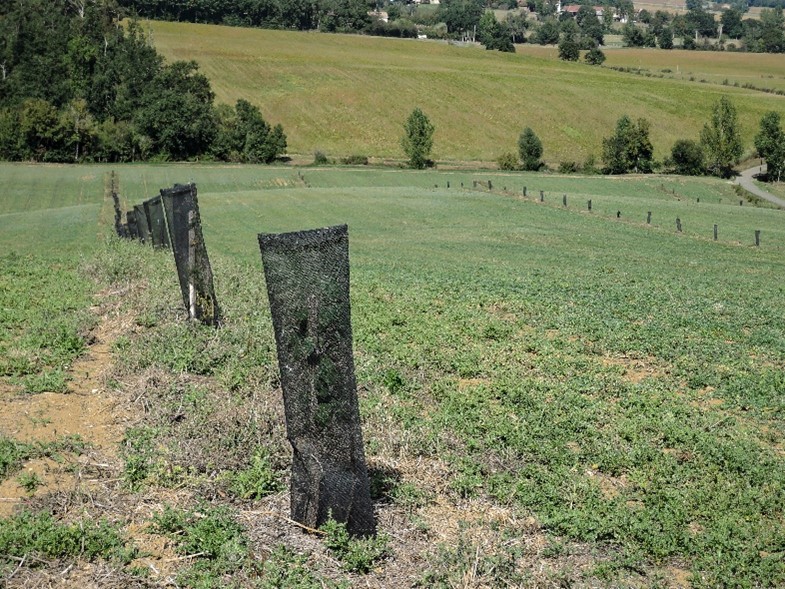
Ferme de Taux is a family run organic mixed crop-livestock farm with land in two locations – one location with a cropping system producing cash crops as well as crops dedicated to the livestock and the other location, with barns and grasslands where livestock are kept. They are organic certified since 2008. The livestock is the local beef cattle Gasconne that is grazing in the mountains from June to October, and the rest of the year either grazing on the farm or kept indoor. At the cropland farm the cash crops are wheat, triticale, soybean, fababean, sunflower, pea, barley, and buckwheat agriculture with a 100% soil cover during winter. Hay and fodder crops are transported from the cropland farm unit to the cattle farm and manure the other way. The family is also collaborating with local sheep farmers nearby the cropland farm unit who are grazing their animals on the cover crops and grassland. The farming enterprise is very diverse. They also undertake farming operations for other farmers in the area. The family is already selling products directly at markets and have a goal to develop the direct selling channels further. They organized a great “burger party” for the MIXED team based on their products and plan to develop this activity for various events.
Ferme d’Icart is a family farm managed as an organic mixed livestock-cropping system with a beef herd of the Gasconne breed of the Pyrenees and crops such as wheat, grain-legume mixtures, soybean, sunflower, chickpeas, and flax together with cover crops and a no till system. The farm was formerly a dairy farm, but they decided to stop, and instead started a conversion to organic in 2016. As part of the organic system, they also started raising beef cattle of the Gasconne breed. Agroforestry was introduced in 2021 with lines of different tree species matching the soil type and the desired purpose of the trees. Trees are planted for timber and fodder production, as well as for improved animal welfare and soil quality of the land. The farmers also want to improved climate resilience in the parcels that will be part of the dynamic rotational system on the farm. Now the trees have been planted, the challenge is to integrate the trees in the farming systems. The farmers also want to develop the conservation agriculture further with direct seeding in the cover crops. With the diversification – the increase of the ‘mixedness’ – the farmers are also facing challenges in the development of short marketing chains and direct selling of their products.
At both farms MIXED were warmly welcomed and the farmers openly explained about their farms, plans, management, considerations, challenges and hopes for the future. The MIXED team were impressed by the numerous ideas and initiatives taken by the farmers to transform their business to more mixed, diversified, and sustainable systems and at the same time considering the changing environment in their management of the land and the farms’ resources. Thanks a lot for sharing and for the inspiration.
